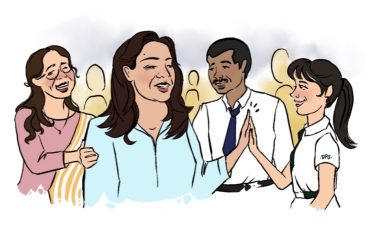
When I first stepped into my role as a Supervisor, I believed that leadership meant knowing the rules, quoting them fluently, and executing them with the precision of a robot trained in corporate law. I devised my own magic leadership formula which states
“Know the rules. Follow the logic. Give clear instructions.” I assumed that my magic formula will make people trust me, respect me and maybe even like me more.
Then came the day the universe decided to test the magic formula I devised. A colleague walked into my office with tired eyes, clearly anxious about a tough decision she had to make. So, I did what I thought a “good leader” should do. I pulled out my imaginary handbook and started reciting the rules.
“The policy says this.”
“If you follow these steps, you’ll be fine.”
She nodded politely, thanked me softly, and left. I watched her go, quite pleased with myself. Another crisis solved with the power of logic and a good memory of school policy. But something about the way she left stayed with me. She didn’t look relieved. I felt that she walked out of my office with a heavier burden.
I was disturbed and kept wondering if I had really supported her. That thought stayed with me, and by the time I got home, I couldn’t shake it. My confidence in my “leadership formula” was crumbling. I decided to call her. No rules or policies this time but just a simple, “Hey, how are you feeling about everything?” There was a long pause—then a sigh. And then words – real, raw words. She talked, and I listened – not as her supervisor, but as a friend who understood what it’s like to have a hard day. By the end of that call, nothing on the school record changed – but everything about my idea of leadership had.
The next morning, she greeted me with a genuine smile. She was composed with more lightness in her step. She found the clarity she needed and made the right decision on her own. That incident taught me something I’ll never forget – “Leadership isn’t just about giving answers, it’s about creating space for people to feel safe, seen and supported”.
Since then, I’ve shifted the way I lead. I still use structure and logic when needed, but I’ve learned to lead with empathy first. My journey as a leader is still unfolding, shaped by every conversation, every challenge and the trust people choose to place in me. Now I carry with me my new magic formula – “Logic makes you efficient. Empathy makes you effective.”
DALIYA DAVID,
SUPERVISOR – GIRLS & BOYS (VIII GRADE)


